Professional translation of scientific presentations
Scientific presentations have a long tradition. You should summarize the findings of specific research and bring the audience to the current state of knowledge. In regards to the presentation of such scientific findings and research in a globalized world, some challenges arise when it comes to their translation.
Global and digital
There are different kinds of scientific presentations. Firstly, there is the traditional variant in which the presentation is prepared by hand. Panels and images are created in analog and there is no presentation software used. Admittedly, these types are hardly used for this type of presentation.
Typically, a scientific presentation will be completed in digital channels today. There are several applications available for this purpose. Presentations take place today not only locally but are transmitted via the internet. This is a huge difficulty for translators and interpreters because often there is also still a need for simultaneous interpreters.
Instant quote
Presentation programs
One of the most popular applications for scientific presentations is Prezi. This application is cloud-based, so that the data can be uploaded from anywhere in the world. Thus, the respective graphics are available at your fingertips. Of course PowerPoint from Microsoft is also very often used as well for this purpose. The latest version can be accessed on the cloud. In the Office Online package, the latest application, “Sway” is available. This prepares the corresponding material so that it is immediately available from the web for a presentation. In this way, you can even bypass PowerPoint. All of this software has altered the means by which a scientific presentation is presented. Some systems even offer an internal translator but which is grammatically not usually on target.
In regard to translation
To translate such a presentation into another language a great amount of knowledge is required by the translator. Such translations are completed using complex language into another language. A scientific presentation is directed at a scientific audience and contains appropriate subject-specific vocabulary. The translator must therefore also be versed in the field and know the terminology. To complete your quality translation, we work exclusively with native translators, who also specialize in at least one area of expertise.
| Schweiz | Präsentationen |
| Österreich | Präsentationen |
| Deutschland | Wissenschaftliche Präsentationen |
| United States | Scientific Presentations |
| France | Présentations scientifiques |